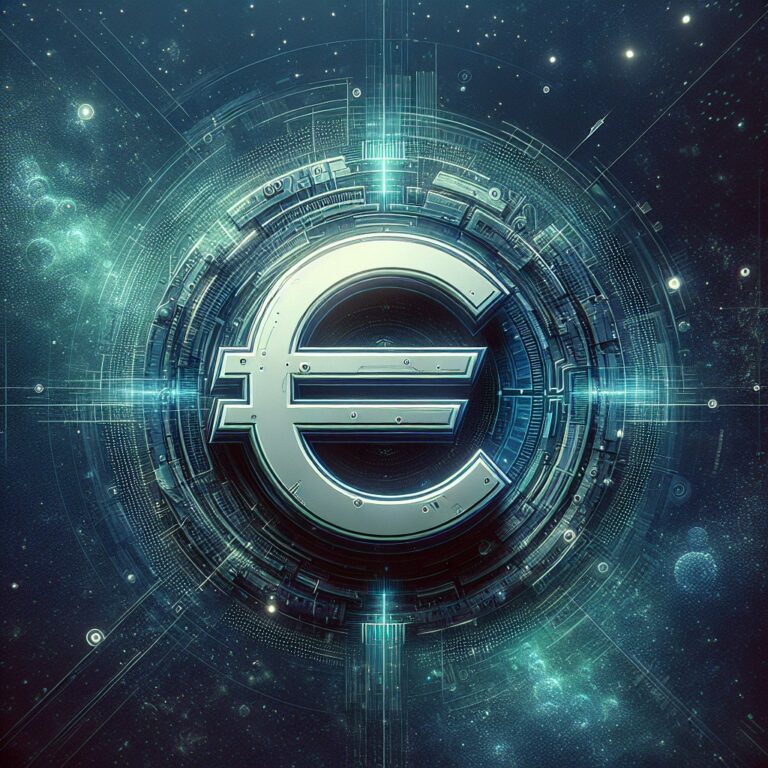European Union lawmakers remain skeptical about the digital euro, even as the European Central Bank (ECB) intensifies its campaign to promote it as a safeguard against financial crises. On September 5, 2025, discussions in Brussels revealed a mix of cautious optimism and outright doubt as policymakers weighed the potential benefits and pitfalls of the proposed digital currency.
A Safety Net or a Trojan Horse?
The ECB argues that a digital euro could serve as a critical safety net during economic turmoil. According to the bank, this digital currency would ensure uninterrupted access to money, even if traditional financial systems were to falter. However, this pitch has not entirely won over EU lawmakers, who are concerned about the broader implications of digitizing the euro.
“The idea of a digital euro is fascinating, yet we must tread carefully,” noted Markus Weber, an EU parliamentarian. “We need to understand the full ramifications before diving headlong into this new monetary realm.” Weber’s concerns echo a broader hesitancy within the legislative body, where questions about privacy, security, and the potential erosion of the traditional banking system loom large.
Privacy Concerns and Economic Impact
One of the most contentious issues surrounding the digital euro is privacy. Critics worry that a centralized digital currency could lead to increased surveillance of financial transactions, effectively dismantling the anonymity that cash provides. This has raised alarms among privacy advocates and some lawmakers who fear that such a system might pave the way for state overreach.
“The ECB needs to provide ironclad assurances that a digital euro won’t become a tool for intrusive monitoring,” said Sofia Lund, a financial analyst based in Stockholm. “Without these guarantees, public trust in the currency could be severely undermined.”
Beyond privacy, the introduction of a digital euro could have significant economic implications. For one, it might alter the landscape for commercial banks, potentially reducing their role as intermediaries. While the ECB maintains that the digital euro is designed to complement, not replace, existing financial systems, skeptics remain unconvinced. This skepticism is mirrored in the broader digital finance landscape, as highlighted in our coverage of the US SEC’s efforts to quantum-proof digital assets.
The Bigger Picture
The debate over the digital euro unfolds against a backdrop of rapid advancements in digital finance globally. Countries like China have already launched digital versions of their currencies, while others, including the United States, are exploring similar initiatives. These developments put pressure on Europe to keep pace in the digital currency race.
Yet, despite the growing momentum, the path forward for the digital euro is fraught with challenges. Technical hurdles, regulatory considerations, and the need for cross-border collaboration all present formidable obstacles. The ECB’s proposal is still in its exploratory phase, with pilot programs and consultations planned throughout 2025. The final decision on whether to roll out a digital euro will hinge on these findings, expected to be complete by late 2025. For a deeper understanding of the potential technological challenges, see our analysis of quantum computing’s impact on crypto security.
Looking Ahead
As the dialogue continues, the future of the digital euro remains uncertain. Lawmakers and stakeholders are poised to play a crucial role in shaping its trajectory. The coming months will likely see intensified debates, as well as lobbying from interested parties both for and against the initiative.
What lies ahead for the digital euro? Can it indeed become the financial lifebuoy the ECB envisions, or will it falter under the weight of its own complexities? As Europe stands at this crossroads, the answers remain elusive, promising a riveting chapter in the ongoing saga of digital finance.
Source
This article is based on: EU lawmakers skeptical of digital euro as ECB renews pitch
Further Reading
Deepen your understanding with these related articles:
- Bitcoin Fortress: El Salvador Shields $678-M From Quantum Threat
- SEC Receives Filing For XRP Option ETF From $12-B Amplify
- US Government Publishes GDP Data on Bitcoin, Solana and Other Blockchains

Steve Gregory is a lawyer in the United States who specializes in licensing for cryptocurrency companies and products. Steve began his career as an attorney in 2015 but made the switch to working in cryptocurrency full time shortly after joining the original team at Gemini Trust Company, an early cryptocurrency exchange based in New York City. Steve then joined CEX.io and was able to launch their regulated US-based cryptocurrency. Steve then went on to become the CEO at currency.com when he ran for four years and was able to lead currency.com to being fully acquired in 2025.


